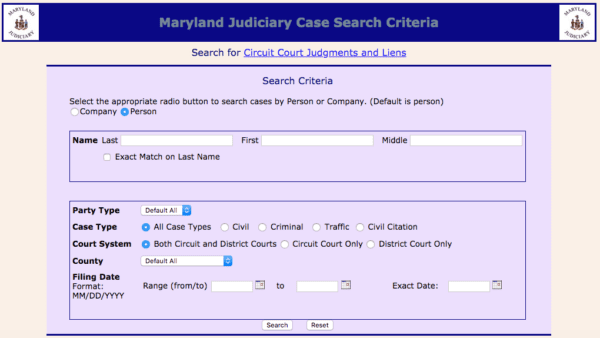
In Maryland, the validity of a warrant depends on the type of warrant and the statute of limitations of the accompanying criminal charge. How Long Does a Warrant Stay Active in Maryland?

One way may be to file a motion to convert it to a summon or surrender to law enforcement on their terms. Persons who find a pending warrant should endeavor to speak to or hire a criminal defense attorney to recall the warrant. This can lead to an arrest by the police if the warrant's issuance is confirmed. Other counties like Baltimore will only provide warrant information to the individual at the precinct. Some have warrant departments or units to interface with the public. Still, some counties have warrant search pages on their main websites.Īlternatively, criminal background checks can be conducted with the Criminal Justice Information System (CJIS), a service run by Maryland's Department of Public Safety & Correctional Service, to discover active warrants in Maryland.Īnother way to carry out a Maryland warrant search is to contact local police departments. Interested persons can also call the relevant clerk's office for warrant data using contact details on the court directory page of the Maryland courts' website. Copies of these documents can be made for 50 cents per page, with an additional $2 for copy requests made by mail. The records are archived there and made available to the public for review.
#MD CASE SEARCH MARYLAND JUDICIARY HOW TO#
How to Find Out if You Have a Warrant in Maryland?Īn excellent place to start a Maryland warrant search is the clerk's office of the courthouse where the warrant was issued. An example of a sufficient reason is that a crime is being committed on a property. This application (or affidavit) must always establish probable cause because, without these grounds, no judicial officer can release the warrant. To secure warrants in the state, law enforcement officers must apply in writing to a magistrate or judge. Maryland courts issue different types of warrants, including arrest warrants, search warrants, bench warrants, fugitive warrants, failure to pay warrants, tax warrants, no-knock warrants, failure to appear warrants, capias warrants, and execution warrants. This action typically overrides an individual's constitutional rights, as it often requires law enforcement to enter someone's property and seize items without their consent. What is a Warrant in Maryland?Ī warrant is a written order from a judge or magistrate permitting law enforcement operatives to take action against a person or a property. The request must establish a good reason to ensure that the judicial officer can release the warrant. All records are archived there and made available to the public on request. A person can submit a written request to the local clerk's office at the courthouse or appear in person during work hours. However, the act does not provide access to all records to protect the privacy of citizens and the government of Maryland.

According to Maryland's Public Information Act (PIA), members of the public may have access to judicial records and are allowed to make copies of these records under requests. Since warrants are considered judicial records and part of Maryland criminal records, they may be disclosed to the public.


 0 kommentar(er)
0 kommentar(er)
